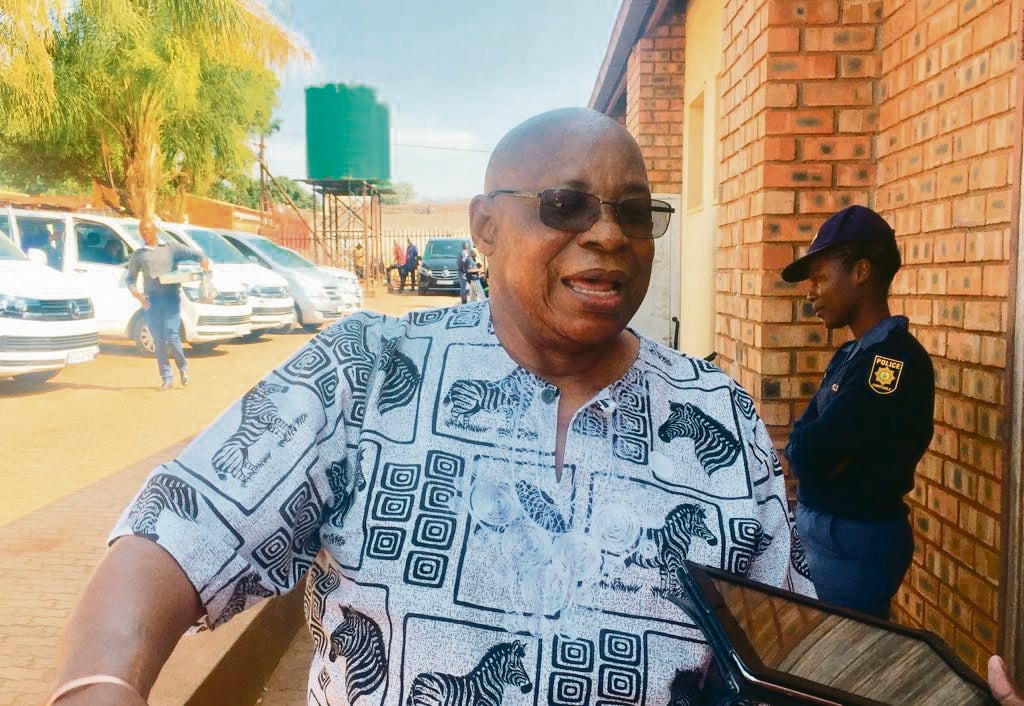
Portions of the land that the Balobedu community in Tzaneen in Limpopo have been claiming since 1998 are being secretly developed in order to hike the value of the property and make it unaffordable for government to buy back.
This is according to a member of the community’s Modjadji royal family, Ballpen Molokoane (69), who suspects that the expensive developments are allowed to happen because “the land commission officials are in cahoots with the farmers”.
In terms of the law, says the former teacher, “if a claim is lodged and developments are made there, the claimants must approve of it”.
“That is why we fully support this policy of land expropriation without compensation,” he says.
His ire with the land commission goes further. It appears that the commission has already bought some of the portions of land the Balobedu community have claimed, but transferred the property to the department of rural development and land reform.
“They have not given us the list of those farms and they should also have handed over these farms to us, not government, because they belong to us.”
Their land claims cover the areas around the Letaba river up to the border of the Kruger National Park, Molokoane says.
His support for the land expropriation without compensation policy is also about justice.
“When the whites came, these communities were made to become like labour tenants and our people were compelled to leave. They did not want to work for nothing.”
Some were even murdered by the white farmers and men who resisted were arrested.
People were also moved to overcrowded reserves.
“When people were put into these reserves they also had large stocks of cattle, but they were then restricted to a particular number because if you have large [numbers of] stock you need land.”
Molokoane says white farmers “destroyed our gravesites so that when land restitution started, the graves could not be used as evidence that our people stayed there. So they ploughed over those graves.”
The Modjadji royal family houses about 24 communities that were dispossessed of their land, he says.
Owning a farm is a privilege, not a right
Every morning at 5am before starting work on his fruit farm just outside Tzaneen in Limpopo, Theuns Botha (56) reads the Bible and kneels down for a prayer to “thank the Lord for the privilege” of owning the land.
“It is not a right that I have so it is a privilege to have a farm like this and run it,” says Botha, who is closely monitoring the ongoing parliamentary hearings on land expropriation without compensation.
At least one portion of his farm has been claimed by a community that was forcefully dispossessed under the former apartheid government.
Botha inherited a 36 hectare plot of land “with debt” from his grandfather, who bought the property “many years ago”.
He rented neighbouring sections of land to farm, and eventually bought the properties to grow his land ownership portfolio to just about 200ha.
The farm, Lapland, produced 12 000 tons of mangoes, 6 000 tonnes of avocados, 300 tons of guavas and 10 tonnes of litchis over the past year, says Botha, adding that his production costs run up to R1 million every year.
He cites Woolworths and a local juice-making factory among his top clients. The leftovers go to the export market.
Botha says that he employs 36 people on his farm. They are like family and he even knows their children.
“Some have been here for more than 20 years and I have a good relationship with them. They are my most valuable assets. I need them to spray for me and pick for me.
“I have a mean team this side,” he says.
Botha mentions George Makhubela, one of his drivers and a handyman, who is a pastor in his community and works from Tuesday to Sunday so that he can do his church work on Mondays.
Botha’s congregation supports Makhubela’s church by covering expenses such as electricity.
If the land expropriation policy is implemented, Botha says he is worried about “what is going to happen to my people who work for me”.
“Most farms in this area went out of business soon after the land was given back because the people had no training,” he says.
He has a masters in plant pathology from the University of Pretoria.
His second concern is about the threat to appropriate the land for free.
“We have also put millions of our money into these farms and all of a sudden [they will be] taken without compensation. That does not make sense.”
He says that he is not opposed to people getting their land back, but “the truth is that if you get something for free you do not appreciate it”.
“We started from scratch here with nothing and a lot of debt and that is how we began to appreciate it.”




 Publications
Publications
 Partners
Partners








